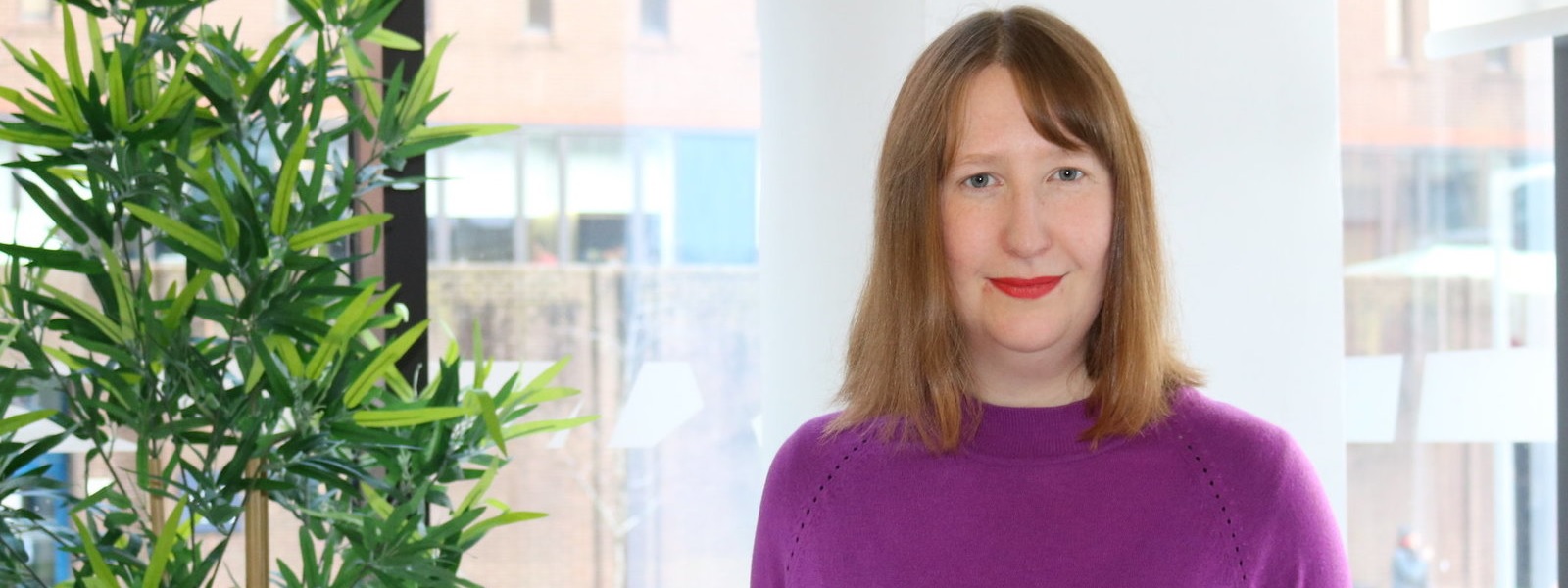Tell us a bit about yourself...
I come from Oban, a small town in the west Highlands. I first moved to Glasgow back in 2003 to do a degree in English Literature and Slavonic Studies at the University of Glasgow. After graduating, I lived in London, the Czech Republic, and New Zealand, before settling again in Glasgow and doing the MRes in Creative Writing at Strathclyde. There was a ten year gap between my undergraduate and postgraduate studies, which made it a bit daunting at first, but the good thing about practice-led research is that it combines critical work with your existing creative practice.
What initially sparked your interest in Creative Writing?
I've loved writing stories for as long as I can remember. I think part of the appeal is that I find people endlessly fascinating and I like how fiction allows you to try on other lives. Past lives. Alternate experiences. Hilary Mantel once said that writing comes out of a "greed for experience". I suppose I've always been greedy that way.
Why did you choose Strathclyde for your PhD study?
I knew that I wanted to be based in Glasgow - it's a great place to live - and Strathclyde had the best supervisory fit. I was aware, after doing my MRes, that there were excellent novelists in the Creative Writing department, but one of the best things is the additional expertise I've been able to draw on from my secondary supervisor, who is a medical historian. Strathclyde is home to the Centre for the Social History of Health & Healthcare, and the Scottish Oral History Centre - I knew that my research would benefit from access and exposure to their research communities and activities.
Tell us about the nature of research...
My practice-led project combines Creative Writing and History of Medicine and examines how we inhabit historical bodies through early twentieth century historical fiction. My main creative output is a historical fiction novel, focusing on postwar gender dynamics and the birth of the NHS, whilst my critical work builds on this, using feminist theory to interrogate issues around censorship in women's writing, the medical gaze, sex education, and the history of contraception.
What do you like about the Creative Writing course?
I love how flexible practice-based research is. I've very much been allowed to work at my own pace and direct my own research activities, which have included things like community engagement. I've also been able to balance it with work commitments; this is something I was initially worried about as I knew I'd have to keep working to pay the rent but I also really wanted to be able to take on teaching responsibilities. In the end I've been able to do it all, and whilst it certainly keeps me busy, I love every minute of it.
One of the best things about a Creative Writing PhD is that the form of the final output means I get to tackle a whole load of intersecting issues that it would otherwise be difficult to cover in one thesis. When writing fiction, you're dealing with whole characters, whole lives; you get to explore the range of human experience and thus critique the power structures we are all bound up in. You can give your ideas a human face, arms, legs. Ultimately though it's about telling stories - making connections.
What's the Strathclyde research community like?
It's been good to meet researchers from a variety of subject areas. There are always lots of seminars on interesting topics during term time and these often include visiting speakers from other institutions sharing their work. The research skills courses are also useful. When I started my PhD I couldn't imagine myself presenting at large international conferences; having the support of my supervisors and peers has made all the difference.
What are the Strathclyde facilities like?
I often work from home but it's good to have the Humanities & Social Sciences graduate school and the library on hand. We may not have the biggest library, but there's a huge amount of online resources and the staff are really helpful. I'm not the most tech-savvy, but they've helped me track things down in online archives, like government papers and legislation.
Tell us about the support from your supervisor and the wider Strathclyde team?
My supervisory team are fantastic. I always feel really well supported, and inspired by them; I get a lot out of our meetings. At present, I'm co-supervised between Strathclyde and Stirling universities, something the department have helped to arrange. Inter-institutional supervisory arrangements allow you to tap into a broad range of expertise. The Postgraduate Research and Graduate School staff are always very helpful, and as I've progressed through my PhD, I've enjoyed joining the teaching teams for various undergraduate modules.
What would be your advice for people considering a PhD?
Make sure you have a project you're passionate about. You are the only person who can motivate you so you need to love what you're doing. When it comes to practice-led research you need to be sure it's right for you. As well as the creative work you need to be interested in critical theory and want to spend time on more traditional research methods too, as these will come into your critical work. You don't need to do a PhD to write a novel - indeed it could end up getting in the way - but if you also enjoy academic writing and want to pursue a creative and academic career simultaneously, then this is a great way to do it.
What are your career ambitions for the future?
I'm hoping to publish more creative work, but I'm also hoping to build my academic career and gain more teaching experience.
Any final words of wisdom?
Look into funding options early. The deadlines for applications are often sooner than you'd think.

